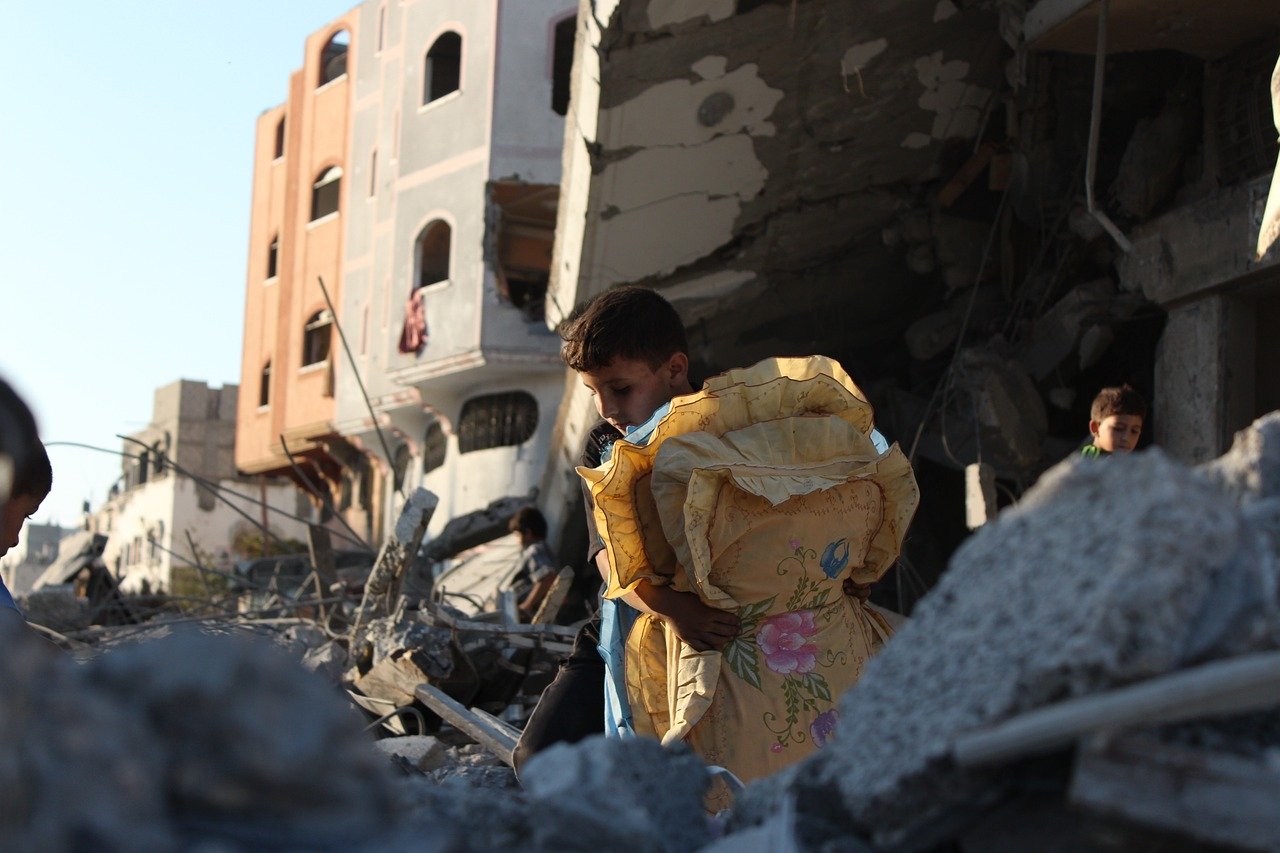
Starvation death “horrific”, says US
The Hague/Washington: After a group of United Nations experts reported the starvation death of 15 children at Kamal Adwan Hospital in northern Gaza, South Africa today filed an urgent request with the Court for the indication of additional provisional measures and the modification of the Court’s prior provisional measures Order and decision in its case against Israel concerning Application of the Convention on the Prevention and Punishment of the Crime of Genocide in the Gaza Strip.
In its new request, South Africa states that it is “compelled to return to the Court in light of the new facts and changes in the situation in Gaza — particularly the situation of widespread starvation — brought about by the continuing egregious breaches of the Convention on the Prevention and Punishment of the Crime of Genocide . . . by the State of Israel . . . and its ongoing manifest violations of the provisional measures indicated by this Court on 26 January 2024”.
South Africa requested the Court to indicate further provisional measures and/or to modify the provisional measures indicated in its Order of January 26, 2024, “in order urgently to ensure the safety and security of 2.3 million Palestinians in Gaza, including over a million children”. It urged the Court to do so without holding a hearing, in light of the “extreme urgency of the situation”.
Earlier on December 29, 2023, South Africa had filed an Application instituting proceedings against Israel concerning alleged violations by Israel of its obligations under the Convention on the Prevention and Punishment of the Crime of Genocide (the “Genocide Convention”) in relation to Palestinians in the Gaza Strip.
The Application also contained a request for the indication of provisional measures, under Article 41 of the Statute of the Court and Articles 73, 74 and 75 of the Rules of Court. South Africa had requested the Court to indicate provisional measures to “protect against further, severe and irreparable harm to the rights of the Palestinian people under the Genocide Convention” and “to ensure Israel’s compliance with its obligations under the Genocide Convention not to engage in genocide, and to prevent and to punish genocide”.
Public hearings on the request for the indication of provisional measures submitted by South Africa were held on Thursday 11 and Friday 12 January 2024. On January 26, 2024, the Court delivered its Order on South Africa’s request.
On February 16, 2024, the Court issued its decision on South Africa’s request for additional provisional measures dated 12 February 2024.
Meanwhile, describing the starvation deaths of children in Gaza as “horrific”, the United States said Israel needs to do more to ensure that food gets in to address the “very real, dire humanitarian needs of the Palestinian people”.
The World Health Organization said that its officials had visited Shifa Hospital in Gaza, where there was the treatment of 50 children suffering from severe acute malnutrition.
There have been reports that Israel was “systematically” denying and restricting the entry of humanitarian aid into Gaza by intercepting deliveries at checkpoints, bombing humanitarian convoys and shooting at civilians seeking humanitarian assistance. There were reports of 14 World Food Programme trucks blocked by the Israelis going to the north of Gaza.
In some cases, members of the Israeli cabinet too made it hard to get aid in. Conceded the US State Department spokesperson, Matthew Miller, “…you have seen ministers in the Israeli Government block the release of flour from the port at Ashdod; you have seen ministers of the Israeli Government supporting protests that blocked aid from going into Kerem Shalom. So all of those things are obstacles coming from ministers inside the Israeli Government that we have called out, that we have said are unacceptable, and that we have said should end”. However when told that this raises questions about the legality of US military assistance to Israel, Miller countered saying, “We have seen actions by specific ministers of the Israeli Government to try and block aid, but ultimately we’ve seen the Government of Israel take decisions to allow aid to go in”. He emphasised that Israel was letting humanitarian assistance go in through checkpoints. “I don’t think anyone would dispute that,” he said.
The US administration meanwhile, told the visiting Israeli War Cabinet Minister Benny Gantz in Washington about the need for Israel to act urgently to enable the delivery of humanitarian assistance to Gaza and to improve the distribution of that aid inside Gaza.
“You have seen the United States take action to airdrop food supplies in. You have seen us take action to fund the delivery of humanitarian assistance. You have seen us announce that we are exploring a maritime option to deliver humanitarian assistance through new routes. But it still is incumbent upon the Government of Israel to do more as well,” Miller said in Washington.
On the Gaza ceasefire, the US believes that the obstacles at the moment are not “insurmountable”. Miller, however, said, “Israel put a serious proposal on the table, and it’s for Hamas to accept it; it’s also for Hamas to engage in good faith and show that they actually want to get a deal, and we’re going to continue to engage on good faith on our behalf and continue to try to get a deal over the finish line”.
The US though called for an immediate temporary ceasefire for “six weeks” to allow for the delivery of humanitarian assistance and the people inside Gaza to move around, both doctors and patients and those who need medical care.
A major obstacle seems to be Israel’s demand that Hamas provide the complete list of the hostages to know what exactly Hamas can deliver, what is the status of the hostages that they are holding, confirm that they are alive, and confirm their status.
A Hamas spokesperson reportedly brought up the issue of not being able to pull together a list of hostages for Israel, in an interview to a news television channel.
– global bihari bureau





